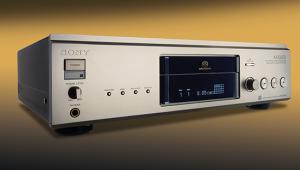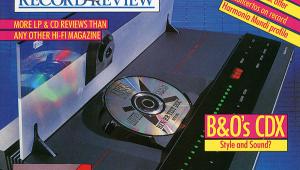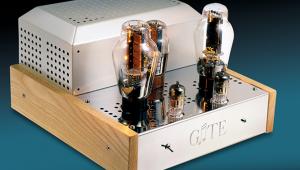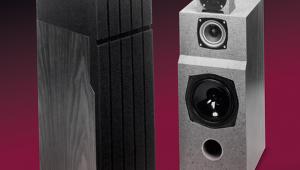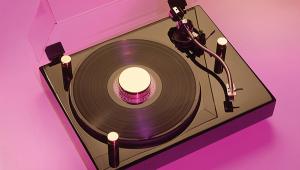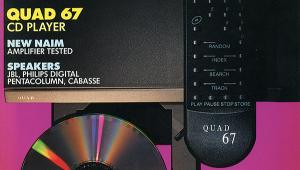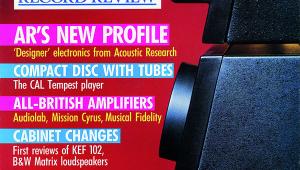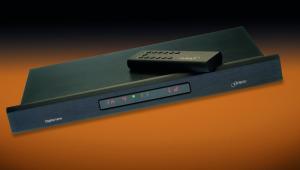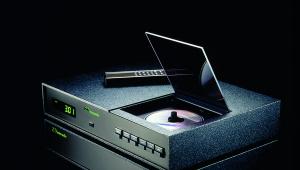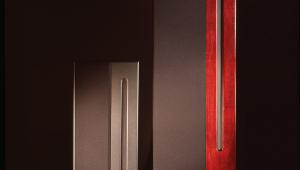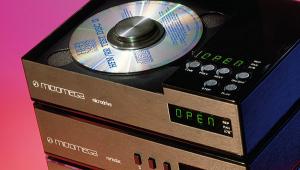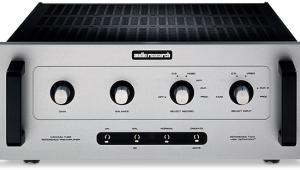Mitsuko Uchida Page 2
'I'd adore that. Even as part of my preparation for Schubert's sonatas I will look at his songs, ideally with a German national. I'd love to expand along that direction, and do the Dichterliebe of Schumann, preferably with a tenor – that shift for the baritone, makes it, somehow, a complete change of colour.'
There is a bit more flexibility with record company contracts now, with artists not tied to one label.
'My own experience so far is that when you are with a company, if you are lucky, you strike a good working relationship with a producer or two – which happened in my case – and with sound engineers and technicians. The sound engineer must have imagination and a general understanding of what it is that I am aiming for.
'From a big company's point of view it is not easy to comprehend what a single piano player is thinking. So, you don't flit from one company to another, that would be very tiring. And, also, when you are with a company and they care about you, they can think of a strategy, a campaign. If a record comes out, it somehow has to be put forward that it has been produced. So then comes the publicity. It sounds awful but it is true, because there are so many records coming out today.'
Do you think there are too many?
'Far too many. So I stick to what I really want to do. Everything has been planned and thought about for years. The right instruments, sound, that sort of thing.'
Because the piano you had for the Queen Elizabeth Hall Debussy…
'That was a rather interesting instrument, wasn't it? And we used that Steinway, working and making it even finer, for the recording. You have no idea how much extra travelling I do to find the right instrument for important concerts. The more precise the machinery has become for recording, the more accurate the piano must be as well.
'Mechanical accuracy is needed to project the accuracy of the imagination. Physical accuracy is easy enough to produce, up to a point. But then, if it has to be produced very precisely, the image, God, the piano has to be of very high standard. Compact discs are harder. I get the feeling the sound is slightly nearer. It's probably quite interesting to feel as if you were in the middle of the orchestra, but I don't want it. I want to be far away... but, anyway, I think I'm very old-fashioned.'
Shall we say something about the Chopin Piano Sonatas record? Critics jumped on you for taking the first-movement repeat in Sonata No 2.
'Oh yes, I even wanted to send a letter, explaining why I did it. I saw in the original copy – which many people thought was Chopin's autograph, because the handwriting was very close – the repeat marking after the Grave is not there. So, in which case, it goes straightforwardly to the head of the piece. And it is Grave to Doppio movimento: a clearcut tempo relationship as well.
'Apart from that, harmonically it is stronger: the return is very abrupt and peculiar if you cut away the Grave. That's one of the reasons that very few people repeat it. But if you go back to the very beginning of the piece there is no such problem.
'So it is from the original copy that I derived that, and I talked about it with Charles Rosen, who found it too, of course. He came to the same conclusion. I did it this way and that, in various forms over the years, and by the end I was totally convinced about it. One of the things about performances is that we can never be totally sure of what the composer meant – we might be making yet another ghastly mistake!'
What do you think of criticism? Do you read it, or ignore it?
'I read them, and lay them aside. And that's it: positive ones and negative ones, certain bad ones. I might just as well know what people are thinking.'
People are not quite sure how to place your playing, are they? They say it's cold or too classical. And others say 'she is so romantic!'.
'I know. There are all the extremes that I have had: that I was over-romantic, too over-classical; that I was too cold, too brash.'
Brash?
'Yes. I've had that too. And even about the same performance: aggressive… so introverted that you don't hear anything. But I don't think I am utterly introverted.'
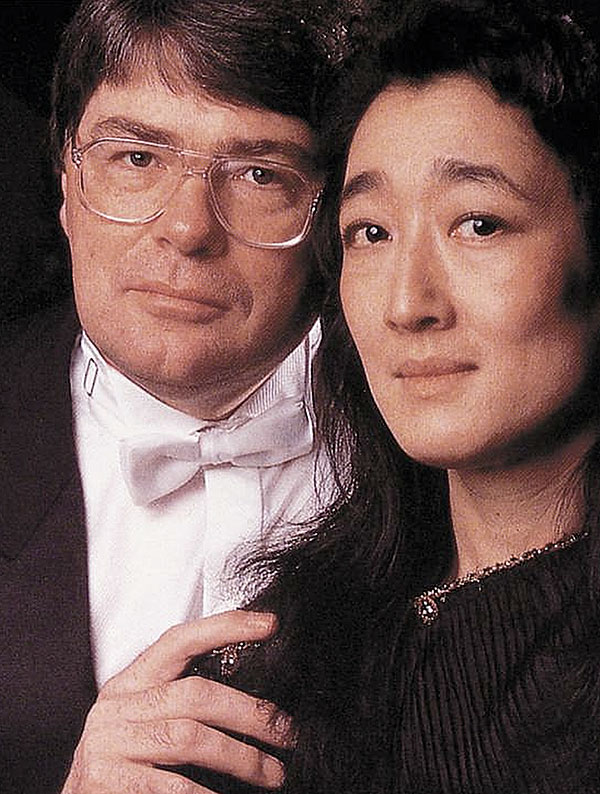
I tend to think of Jeffrey Tate, in the Mozart concertos, as a kind of sterner counterpart.
'Yes. I can be the human voice, as it were. I can take certain freedoms, and Jeffrey keeps very firm. In many of the piano concertos, where the piano has more – I don't want to use the word "feminine" – introverted sections, we can divide it. I can remain in my vision of it completely.'
Jeffrey said he felt he had a job with rapport at the first Henry Wood Hall recording sessions.
'It was very difficult.'
It doesn't show on the record.
'You know, that is because we have the three of us, I say. Jeffrey, the ECO, and me. At a certain point we realised that the winds were not in my sight. If we really listened to each other we would be late, because of the delay. So we simply decided "OK, we nod, and we simply go". That was the only time, I think, where everybody played looking at the stick only, me as well.'
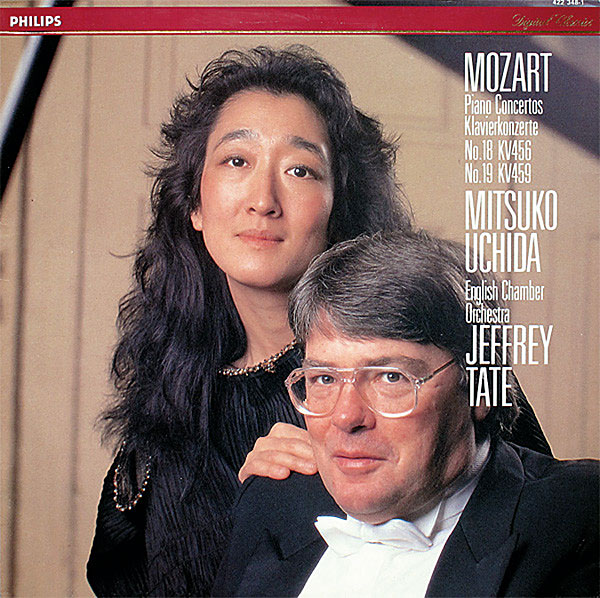
Do you find that you are typecast, in that you are expected to play a Mozart Concerto?
'My general principle is, with symphony orchestras, unless under very special circumstances, I don't accept Mozart piano concertos.
The orchestra must either be specially suited, or the conductor I am going to work with would have an affinity with my way of playing Mozart. Otherwise it will be disaster. So, Mozart, with a few exceptions – K466, 491, 503, possibly 482, pieces that will go with a big orchestra – I find the balance is right with a chamber orchestra. Not only the balance between piano and strings, but within the orchestra: the winds and strings. That means when a symphony orchestra wants me, I try to offer them something else.
'I don't believe in showing everything you have got in one performance: you must simply show what the piece is. There is no way I could be showing all my technical skills in a Mozart piano concerto; there are different pianistic skills if you play Debussy, or Beethoven.
'And I find it very often with the older people: you don't know what sort of technique they had, or not. I assume they had amazing techniques, because you hear the music.'
Do you like to have an audience, or do you see recordings as a different thing? I suspect that you enjoy making records.
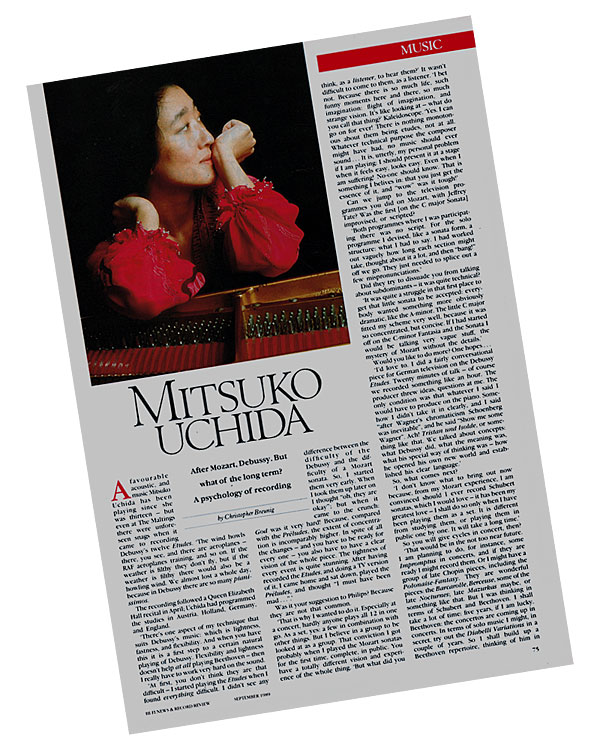
'Yes. Because I have worked out the right psychology, I think. Ultimately, I say to myself, I am not going to aim at a note-perfect performance for the record. If it is: fine! But if there is another option that is musically more satisfying… then that's what I want. Because I've heard so many records at home.
'I still do hear them and the ones I listen to are not for the sake of the perfect notes, but for the sake of what you get musically, emotionally, or from the vision of the performances. Or the imagination, the horizon. All of what counts in what I call, as a whole, music.
'Nor do I go for an intellectual statement about the piece. I want to be able to experience the initial fresh surprise, if you can capture it on record. I want the sound to fly in the air, if it should fly – even on a record.
'One advantage of a performance in public is that you know it is only now. You make it or you don't make it. There is no such thing as, after a performance, saying "Sorry, that was not very good, let me do it again". So that means at that very moment you have to give everything, and risk your neck and just hope that it works.'
And do you mind that there are very few hours for rehearsals?
'Yes. Certain public performances, concerto performances: a lack of rehearsal time. It is very upsetting. But even that you learn to cope with. During a performance, the duration of that evening develops into one particular event. There is the colour of the performance on that particular evening, which is different from the one the night before. And I must say I like that as it gives individual performances a separate character.
From that point of view, a recording should be regarded as one particular performance on one particular day – but records are not seen like that. Rather, it is as if it were a sort of final statement.'

